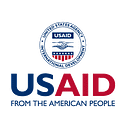CATALYZE Showcases Early Childhood Evidence Building and Engagement with Non-State Sectors
USAID CATALYZE showcased its approach to Early Childhood Care and Education (ECCE) at the Comparative International Education Society (CIES) 2024 conference in Miami, Florida, March 6–14th. CATALYZE pilots blended finance models across Africa, Latin America and the Caribbean (LAC), the Middle East, and South Asia to mobilize private sector capital for non-state schools and education enterprises. This private capital — leveraged with funding from USAID — will help to address the substantial education funding gap, estimated to be over $100 billion by UNESCO in 2020.
CIES convenes educational sector individuals, universities, research institutes, government departments, non-governmental organizations, and multilateral agencies to share cross disciplinary perspectives on education challenges related to schools, teachers, and administrators — from early childhood and primary school to secondary and higher education, as well as non-formal education and lifelong learning.
“Events like CIES serve as a magnet to bring people together on the human level to really connect.” — Michael Tetelman, CATALYZE EduFinance Activity Lead
Highlights from CIES 2024
At CIES 2024, CATALYZE ECCE presented its Together for Early Childhood Evidence (T4ECE) program, which bridges gaps between policy, practice, and research in early childhood education across five African countries (Ethiopia, Liberia, Malawi, Rwanda, and South Africa). The panel, which featured USAID representatives from the Liberia, Malawi, South Africa, and Rwanda tasks forces, highlighted T4ECE efforts to establish early childhood information ecosystems and pilot early childhood development (ECD) tools to measure childhood learning quality. The panel sparked a stimulating discussing about how pre-primary education systems can use data more effectively to enhance early learning and development outcomes, offering a critical forum for interaction with the non-state sector.
Recently, we spoke to Lauren Pisani, CATALYZE ECCE Senior Technical Advisor, who shared her thoughts, perspectives, and key takeaways from CIES 2024.
What themes emerged from CIES 2024?
“The theme that emerged for me was about perseverance. The last few years have been difficult in many ways, with the COVID-19 pandemic, multiple acute and protracted crises, and the resulting economic setbacks. I was encouraged to see the amazing work that colleagues have been doing despite all of these challenges, and importantly, the innovations developed during this time that have supported critical education and early childhood development ECD) programs to continue.”
What priorities did you want to convey about CATALYZE Education Finance and ECCE at CIES 2024?
“Each T4ECE national task team (Ethiopia, Liberia, Malawi, Rwanda, and South Africa) has members from the Ministries overseeing early childhood education (ECE), USAID, and key thought leaders from universities and implementing organizations. Together, they have defined impactful projects that will help to move ECE systems forward in thoughtful, data-driven ways.”
Why are events like CIES2024 so important to sharing the CATALYZE Education Finance and ECCE story?
“The focus on research and using evidence to inform practice and policy is especially important as this makes our work more efficient and increases accountability. Progress toward achieving Sustainable Development Goal 4.2, (by 2030, ensuring that all girls and boys have access to quality early childhood development, care and pre-primary education so that they are ready for primary education) is stalling, and we need to be more intentional about building on the work of others in the industry.”
How do you carry forward momentum from CIES 2024?
“I was energized by the spirit of collaboration that was present at the conference this year. My ambition is that CATALYZE ECCE can become a convener for organizations from public and private sectors that are passionate about improving outcomes for young children. I will be following up with a number of colleagues from different organizations about how we can work more closely together going forward.”
USAID CATALYZE’s global Community of Practice, the Education Finance Network, hosted three panels at CIES 2024 together with several of its members. In a session on “Unlocking the potential of EdTech for effective learning by engaging communities,” Worldreader and EIDU discussed effective ways to engage with teachers, parents, students, and government officials to achieve impact with EdTech interventions. A session on “Fostering effective and enabling regulation of non-state schools,” with speakers from Global Schools Forum and SEED Care & Support Foundation, explored the crucial role of governments in establishing regulatory environments for non-state actors, the challenges faced by both governments and non-state actors in this area, and opportunities and resources for improving regulatory practices. Finally, a panel on “Scaling and sustaining private innovations in public education systems,” with speakers from Innovations for Poverty Action, Fundación Salvadoreña para la Salud y Desarrollo Humano (FUSAL), and Higherlife Foundation, explored the role of non-state actors in bringing innovative approaches to education, and the challenges and opportunities of sustaining and scaling these models in public systems.
Read the EFN’s latest blog, which explores key insights from CIES 2024 and challenges facing non-state actors in education.
Learning and evidence building
CATALYZE’s blended finance approach aims to improve early childhood development and learning outcomes, increase women’s economic empowerment, and create jobs. CATALYZE tailors its approach to the country context to expand access to high-quality ECCE while simultaneously generating and disseminating learnings about effective ECCE models. As CATALYZE’s diverse set of approaches yield substantial learning and evidence, this knowledge is being used to build USAID’s and the wider community’s understanding on how to best invest in blended finance solutions. All learning and evidence generated under CATALYZE ECCE is integrated into the CATALYZE Education’s wider efforts to make the case for blended finance approaches that address global education funding gaps and improve and sustain learning outcomes for children and youth globally.
Read more about the CATALYZE ECCE Activity and technical models employed across Africa and LAC.
